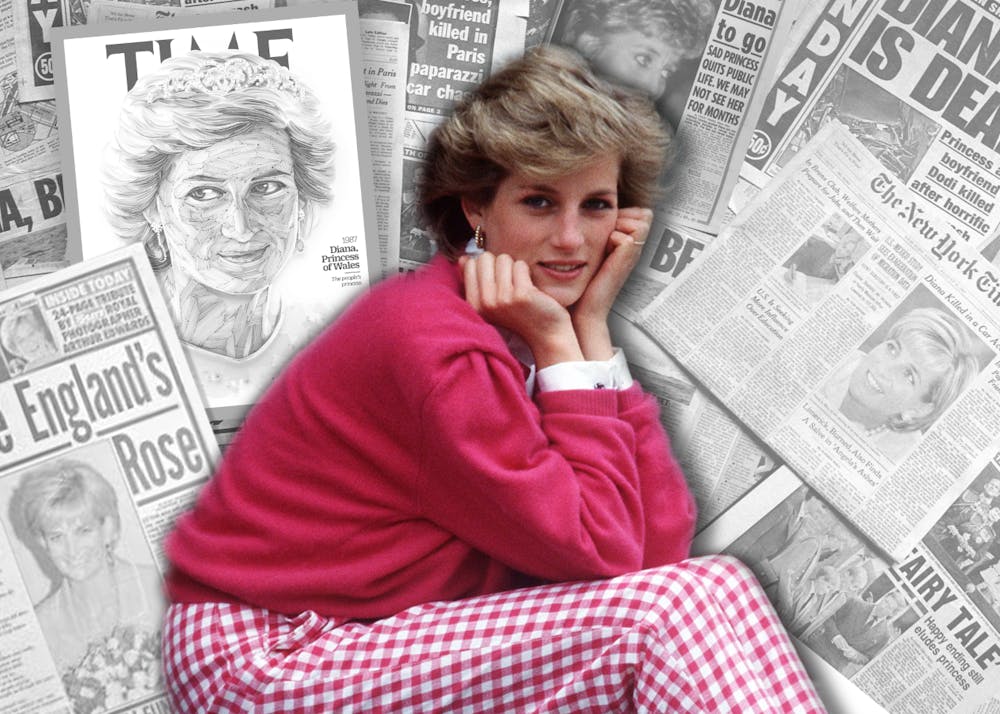There are three certain things in this world: death, taxes and the evergreen popularity of Princess Diana biopics.
Few entries at this year’s Venice Film Festival were as highly anticipated as “Spencer,” Pablo Larraín’s gripping drama detailing the messy breakdown of Diana’s marriage to then-husband Prince Charles. Its September 3rd debut was met with critical acclaim — The Guardian described it as “rich and intoxicating and altogether magnificent”, The Daily Telegraph called it “thrillingly gutsy, seductive, uninhibited filmmaking” and social media went absolutely wild over lead actress Kristen Stewart’s on-point portrayal of Diana (right down to her unmistakable accent.)
At this point, Princess Diana’s story is burned into the collective consciousness of the Western public. It’s a sordid tale: that of the kindergarten teacher who married the heir-apparent to the British throne, found herself trapped in a nightmarish whirlwind of infidelity and mental illness broadcast live to the entire world, and died tragically young under suspicious circumstances. And we’re unwilling to let it go. In the twenty-odd years since her death, Diana’s life has been retold through countless films and documentaries, multiple television series (most recently Netflix’s “The Crown”,) and even an upcoming musical.
Our infatuation with royal life doesn’t stop at Diana. 29 million Americans watched Prince Harry's 2018 wedding to Meghan Markle (for reference, just 33.8 million of us tuned into President Joe Biden's inauguration.) Outfits worn by British princes and princesses go out of stock minutes after photos of them surface online. Members of the royal family unknowingly have their every casual remark and errant sneeze documented, with merciless precision, by Stan Twitter.
If someone had asked the Founding Fathers how Americans would feel about the British monarchy in 300 years’ time, they probably wouldn’t have said “head-over-heels obsessed.” Yet here we are: chronicling Harry and Meghan’s every move, retweeting articles about what Queen Elizabeth likes to keep in her purse, and digging up poor Diana for the umpteenth time. What gives?
One thing we know for sure, at least, is that this brand of obsession isn’t new. It’s been over half a century since psychologists first coined the term “parasocial relationship:” our innate human tendency to become deeply invested in people, especially celebrities and other media personalities, who have no idea we exist. But why, with all the celebrities available nowadays for our mass-media consumption, do we find members of the British royal family particularly compelling?
It could be because of their status. As kids, we all had our fantasies that we’d grow up to become famous and fabulously wealthy — then we realized the real world doesn’t work that way, and most of us abandoned those childish expectations. But when we go online and see the British royals doing ordinary things just like us, some small, hopeful flame reignites in our jaded hearts. When we see “normal” people (like Diana the teacher and Meghan the American) who somehow manage to strike it big and enter the halls of Buckingham Palace, that flame grows. Maybe, just maybe, there’s a chance we could do the same.
Or perhaps our obsession isn’t with the royal family as people, but rather with the British monarchy as a whole. Even in this tumultuous era of COVID-19 and political unrest, it continues to put on its lavish charade, maintained by out-of-touch rich people with no genuine problems save for the ones they create for themselves. They serve as a comforting distraction from the real issues at hand.
Regardless of the true reason why we’re so inexplicably drawn to the British royals, if you’re as obsessed with them as the rest of us, “Spencer” releases in cinemas worldwide Nov. 5. Maybe they’ve added something new to the story this time.
Get The Chronicle straight to your inbox
Signup for our weekly newsletter. Cancel at any time.

